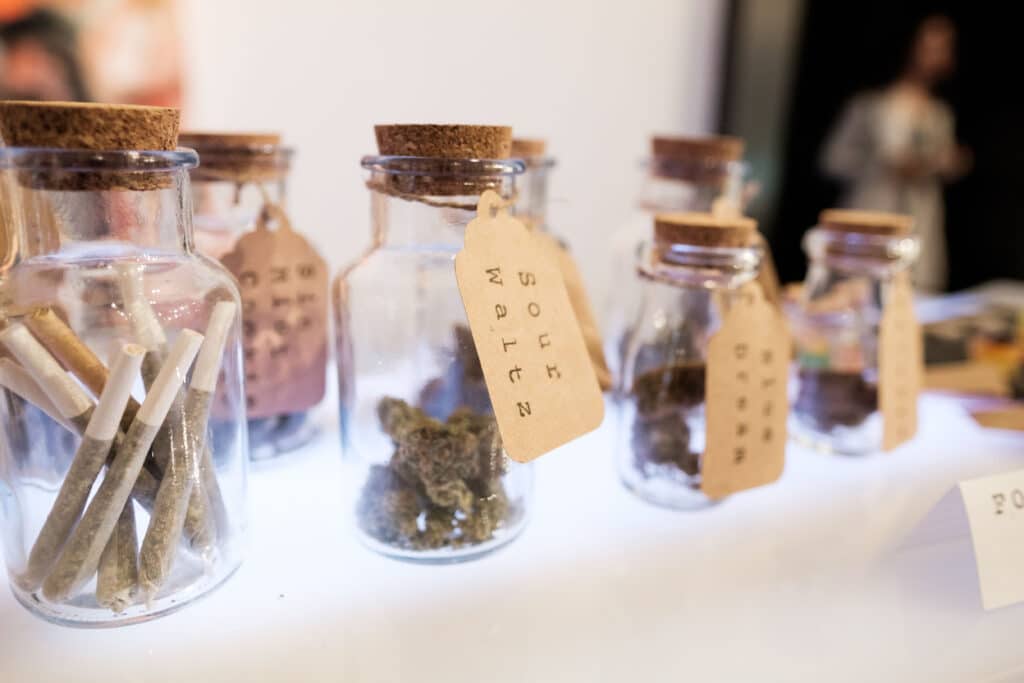
Minnesota Raid on Tribal Dispensary
[ad_1]
In the beginning of August, two Minnesota tribes opened dispensaries on reservations in the state. Right after this happened, Minnesota police performed a raid on a dispensary operating on tribal land. This time around, it was the state and the tribe working together, though; not one vs the other. Read on for more details.
Tribal dispensaries recently announced in Minnesota
Minnesota had a weird year with weed, which culminated in an adult-use legalization as of August 1st, 2023. Between then and May 22nd, 2022, the state had a partial legalization subsequent to government passed legislation to legalize hemp-derived THC in edible products. The plan now is for a full market, but markets take time to prepare; and Minnesota is looking at a year or more before anything actually opens. That means a year or more until residents see legal dispensaries, or until the government starts making money from taxes.
Right now, the state is legal for possession and use; but there’s no formal regulation yet to govern sales. This works for Native American populations that don’t require this regulation, as they operate under tribal sovereignty. This sovereignty was backed up in 2013 with the Cole and Wilkinson Memos, which ended federal regulation of cannabis on these reservations. Now, dispensaries are popping up all over the country run on tribal property, by tribal governments; and they’re doing pretty well because they don’t have to adhere to US government instituted regulatory fees and taxes.
A couple of Minnesota’s local Chippewa tribes recently announced that they had plans to open dispensaries on tribal land. The Red Lake Nation independently legalized the recreational use and sale of cannabis on July 25th of this year, and announced plans to open its first recreational dispensary once the state changeover came in August.
Three days later, on July 28th, the White Earth Nation Tribal Council also legalized recreational possession and sale, with similar plans to open dispensaries; starting with a medical one in early August. These tribes are able to set these laws due to their own tribal sovereignty.
What is tribal sovereignty?
Tribal sovereignty refers to the autonomy of Indian nations over themselves, and ability to govern themselves as independent countries outside of US federal or state laws. This has been argued many times, and repeatedly backed up, while also being repeatedly undermined. It exists in the constitution, and was better defined due to Supreme Court cases like Worcester v. Georgia and Bryan vs. Itasca County.
Yet until the Cole Memo in 2013, the US government regulated cannabis on reservations, regardless of this stated independence. Plus, existing laws like the Gaming Regulatory Act also keep the federal government involved in regulation, which challenges how much the US government backs up its own stated stance of tribal sovereignty. These detractions mean the sovereignty is not 100%, and all independence is a result of a decision to allow it by the US federal government.
Minnesota law enforcement raid on tribal dispensary
On August 2nd, tobacco store and acting dispensary Asema Tobacco and Pipe, on the White Earth reservation, underwent a raid by Minnesota police in conjunction with White Earth tribal police. The reason for the raid, was the suspected illegal sale of cannabis without a license. As of yet, no one was arrested, and charges haven’t been filed by Mahnomen County; though something is expected.
This came about because the dispensary advertised on Facebook that it would have cannabis for sale starting August 1st, the day it became legal within the state. Technically, selling without the right licensing is a crime both by state and tribal law.

According to Dave Hart, the task force commander for the incident, there were already local complaints that the store was selling cannabis illegally. It might not have gotten this same attention, otherwise. Said Hart, via Marijuana Moment, “Marijuana isn’t something we particularly target… We’re busy enough with heroin, fentanyl, methamphetamine. In this particular case, it was a pretty blatant disrespect for the law.”
Though the tribe does not need to follow Minnesotan law when it comes to running a cannabis dispensary, it must follow its own laws. White Earth confirmed by statement that the production and sale of cannabis on the reservation are still illegal outside of correct licensing by the cannabis control commission of the tribe. This issue is not one of tribe vs state, but of the two working together against the black market.
Said White Earth in a statement, “The Band is committed to supporting businesses engaged in the legal sale of cannabis and cannabis products. Unauthorized sales of cannabis will be investigated in accordance with all applicable laws. The Band would caution everyone to use common sense when it comes to cannabis.” It opened its first dispensary on Thursday, August 3rd, without a problem. It’s called Waabigwan Mashkiki, which translates to ‘flower medicine’ in Ojibwe (Chippewa).
What can we learn from this story?
Sometimes the biggest lessons in something, aren’t from direct statements, but from implications. For one, we know that the state and the tribes are working together to a degree. Not only was there an earlier mention that Minnesota would allow (at some point) tribal sales outside of tribal land; but this dispensary raid was not state vs tribe, but rather state working with tribe.
We also know that Minnesota thus far hasn’t challenged the existence of either tribal dispensary, and that the raid wasn’t about that. The two are open legally in accordance with tribal law. The only raid that happened, happened at a store not licensed officially by the tribe to sell cannabis, and which brazenly advertised that it would, anyway.

What we don’t know, or what I haven’t seen in reporting, is what goes on between the tribe and the state behind closed doors. If the government really will back tribal sales off of reservation land, its fair to assume that deals are made between the two entities. In fact, I wonder if we’ll see more of this pairing up to root out illegal businesses in the future; as illegal enterprises – like any black market – threaten both legal state operations, and legal tribal operations.
This shows us that the tribes have the same fear of the black market, as legal markets. However, having said that, the tribes can set lower prices than state dispensaries since the regulation and taxation systems are less expensive for operators. And this gives the ability to be more competitive with the black market. Even so, now that tribal reservations are selling weed, we can see that they definitely don’t want anything taking away from their own market share.
Conclusion
At least this isn’t a negative story of state law enforcement ignoring tribal law, and raiding tribally legal cannabis dispensaries. If anything, perhaps it should strike fear in our hearts that the state and tribes are working so closely together. The recent Minnesota raid on the tribal tobacco store turned dispensary, is more about black market vs legal market, than Indians vs US government. Cheers to that! Perhaps this new weed industry can help repair the mass damage caused to these communities by opioids.
Welcome cannabis aficionados! Thanks for making your way to Cannadelics.com, where we work hard to provide excellent reporting for the cannabis and hallucinogens spaces (and beyond). We’ve got updates daily, so stop on by. And get yourself subscribed to the Cannadelics Weekly Newsletter, so you’re always aware of what’s going on.


